Community Update: How Cherokee Boys Club Is Using Electric School Buses to Deliver Clean Rides, Grid Support and Workforce Training
In Cherokee, North Carolina, the school bus operator has partnered with local and national organizations to bring the benefits of electric school buses to their area.
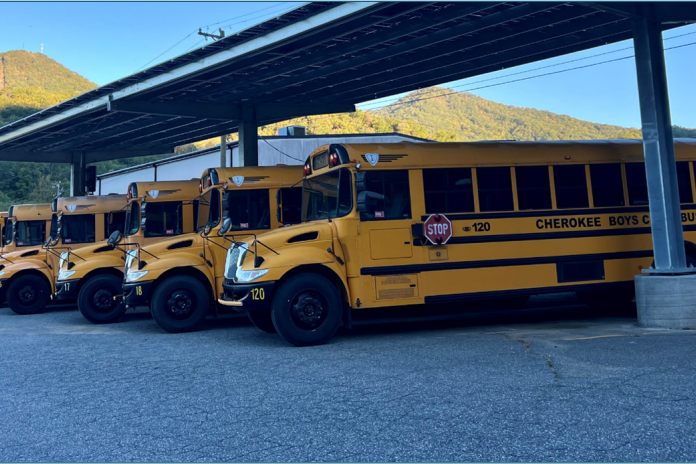
Cherokee Boys Club (CBC) is the school bus operator for the Eastern Band of Cherokee Indians, a sovereign nation located in Cherokee, North Carolina.
This article is written by Katie Tiger, Electric School Bus Project Manager for CBC and details their school bus electrification journey, and how they have made electric school buses a central part of broader efforts.
Native Electric: Cherokee Boys Club’s Electric School Bus Project
The Native Electric project, a collaboration between the Cherokee Boys Club (CBC) and the Eastern Band of Cherokee Indians (EBCI), has had a huge impact regionally and nationally. This project secured the first electric school bus (ESB) for the state of North Carolina, which received national and regional recognition.
Since 2022, the CBC has been transitioning its school bus fleet to electric using funding from sources including the Volkswagen Settlement, the U.S. Environmental Protection Agency (EPA), Duke Energy, Cherokee Preservation Foundation, CBC and EBCI. Currently, CBC operates 16 electric school buses daily, with five more (Thomas Built Generation 2) expected by December 2025. These buses are powered by a mix of onsite solar and grid energy. The shift to ESBs improves air quality and reduces noise, creating a healthier environment for children, especially those with respiratory issues.
Vehicle-to-Grid Pilot Project
The Cherokee Boys Club is actively partnering with electric utility Duke Energy in testing an innovative technology called “vehicle-to-grid” (V2G), which allows electric vehicles (EVs) to both charge from and return electricity to the grid. This two-way charging system turns EVs into mobile energy storage units, helping to stabilize the power grid, reduce peak energy demand, and potentially lower energy costs. Since 2023, CBC has been part of Duke Energy’s V2G pilot program by using its electric school buses to help refine the technology. During several weeks of extreme heat this summer, Duke Energy drew power from CBC’s electric buses to ease stress on the grid and boost reliability.
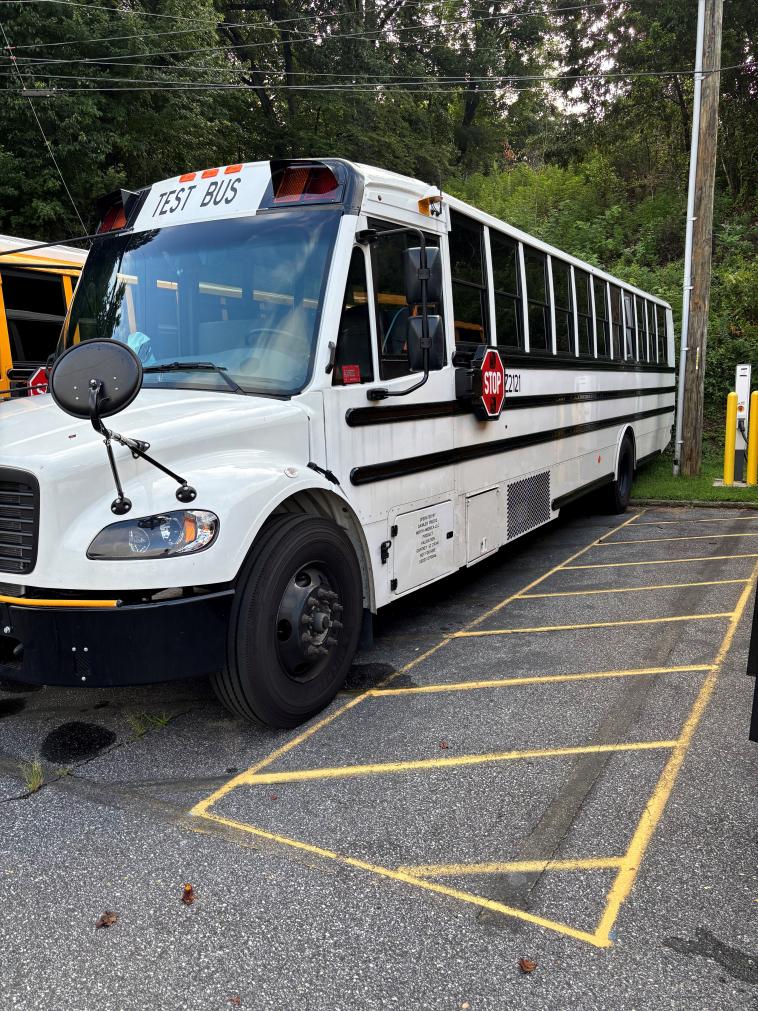
As one of only two V2G-equipped sites in North Carolina, CBC also serves as a testing ground for Carolina Thomas, a dealer for Thomas Built Buses, which brings its next-generation buses to CBC for evaluation. This unique role positions CBC as a key contributor to the development of V2G technology and national efforts to enhance climate resilience.
ESB Microgrid Charging Infrastructure
To further support energy efficiency and grid resiliency, the CBC is partnering with Renewable Design Associates to develop a solar microgrid that will fully power its electric school buses with 100% solar energy. Currently, a 50-kW grid-tied solar canopy—funded by the Cherokee Preservation Foundation—provides partial charging for the ESB fleet. The long-term plan is to construct a 400-kW microgrid that can independently charge the buses without relying on grid electricity. Funded by the EPA and Cherokee Preservation Foundation, this project is scheduled for completion in summer 2026.
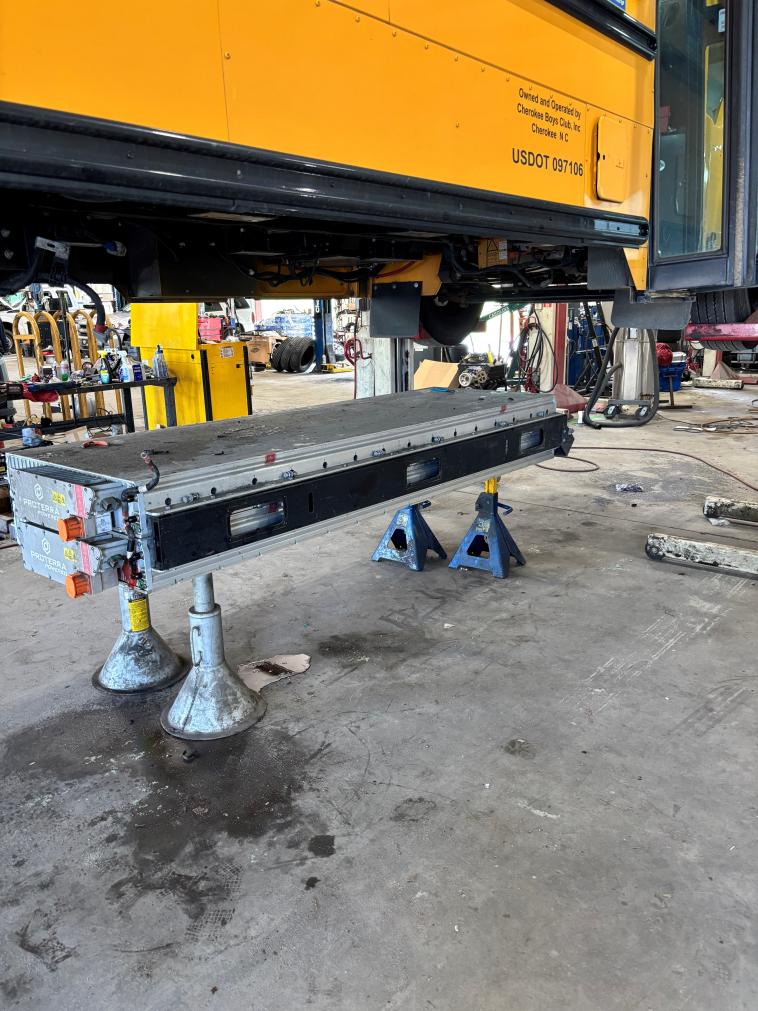
Workforce Development: Solar Golf Cart Conversion
In August 2025, the CBC completed a summer internship program focused on hands-on training for students interested in electric vehicle operations and solar microgrids. The program aimed to equip participants with practical skills in electric bus and vehicle technologies, including working with electric golf carts, using personal protective equipment (PPE), and understanding EV safety basics. The goal was to foster experiential learning, support the development of a local skilled workforce for CBC’s maintenance program and create a model that can be replicated for youth training elsewhere.
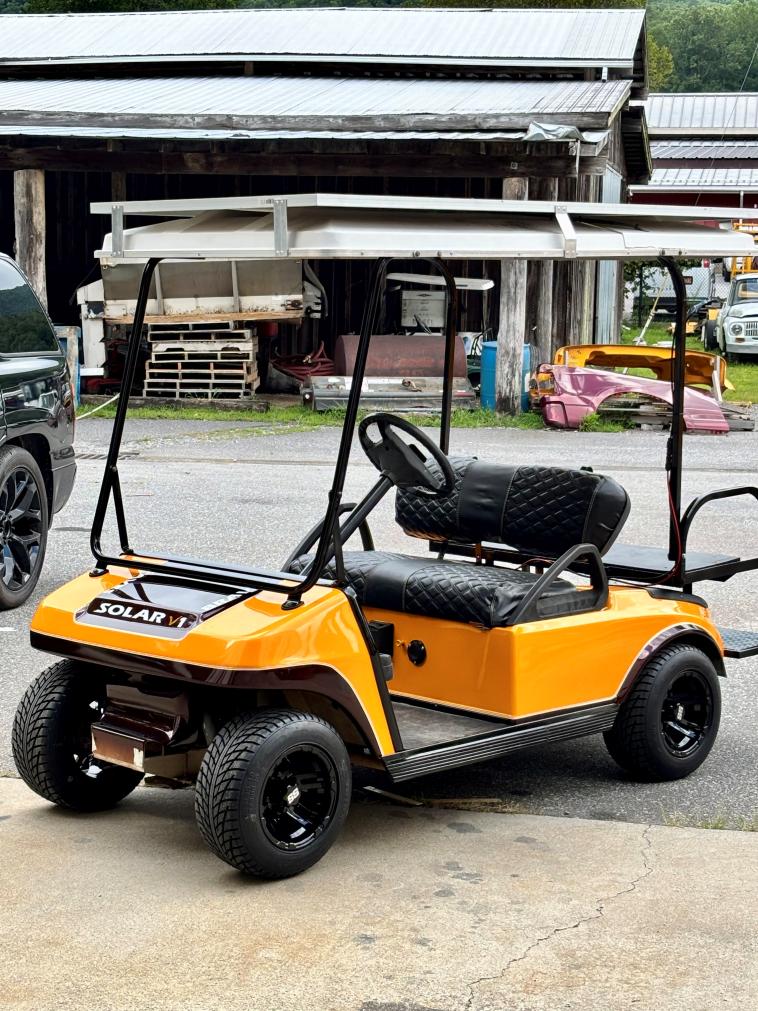
Led by CBC’s Master Technician Cliff Cochran and Service Manager Donnie Owle, students converted old battery-powered golf carts into solar-powered mobile microgrids. One of the converted golf carts was even custom-painted before its public debut—thanks to a design by Cody Gloyne, CBC’s Bodyshop Supervisor—in tribute to the Cherokee Central School’s Braves and Lady Braves. Interns also observed the maintenance of CBC’s electric school buses and got a firsthand look at the organization’s new electric tractor trailer.
This program was made possible through a partnership with the World Resources Institute (WRI) and Cherokee Central Schools (CCS). WRI’s Electric School Bus Initiative provided funding for materials used in the golf cart conversions and supported the training of two CCS staff members at Weber State University’s Automotive Technology Program, which prepares participants to work with high-voltage EVs from past, present, and future generations.
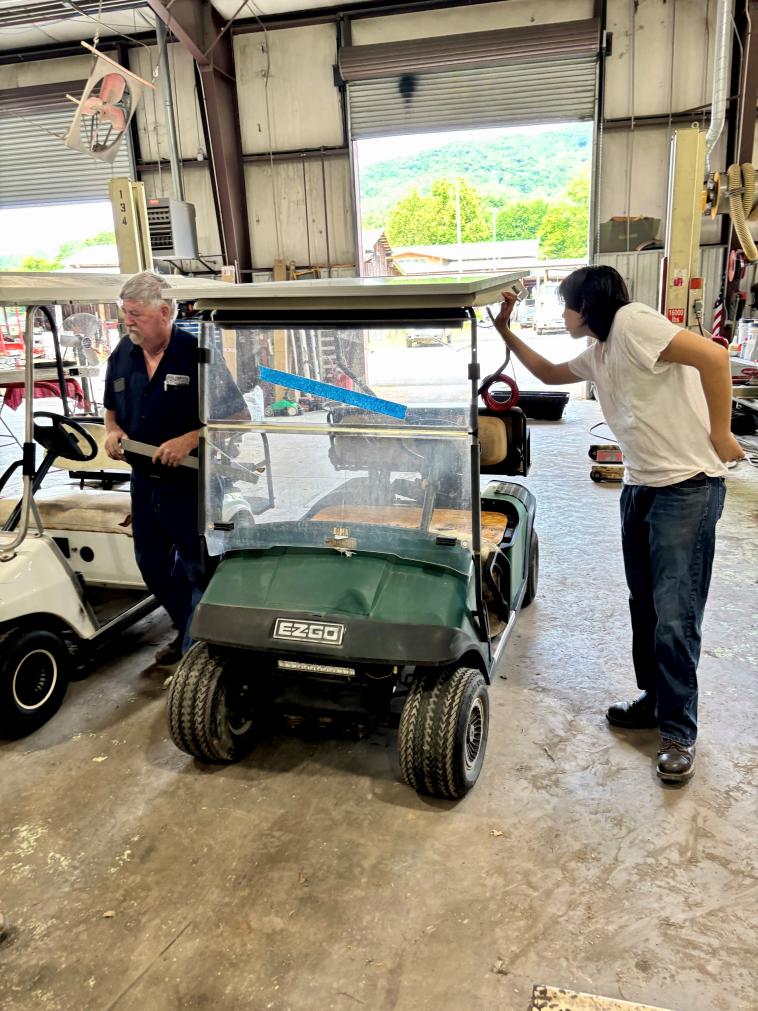
Special thanks to USA Golf Carts in Waynesville for donating the golf carts, WRI’s Electric School Bus Initiative for their funding and support, the CCS staff for attending the Weber State training, and the dedicated CBC team for mentoring the student interns.